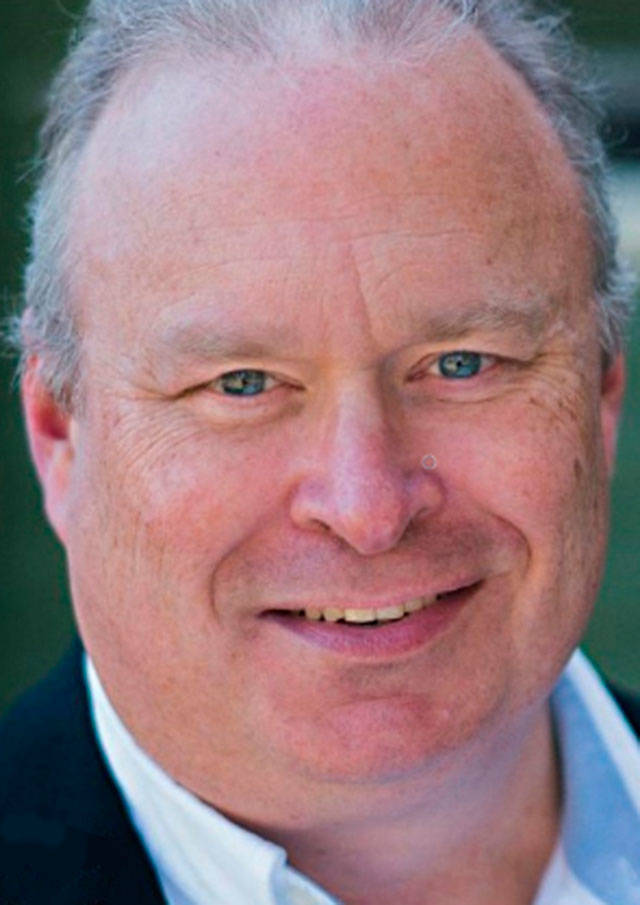Name: Jim Walsh
Education: BA, cum laude, Amherst College (Amherst, Mass.). 1986.
Town: Aberdeen
Party: Republican
Employment or business background: Owner, Silver Lake Publishing (www.silverlakepub.com)
Endorsements: (Please limit the number of endorsements to 3): National Rifle Association, Association of Washington Business, Washington Farm Bureau
Questions
1. We’ve had an updated revenue forecast for almost a month and we know more about the financial and social impacts of COVID-19. Is it time for the Legislature to have a special session to address budget and other issues?
Yes! I’ve been calling for a special legislative session for months. We need to have that session to re-establish our constitutional system of checks and balances in state government. That’s critical. Also, we need to adjust our state’s budgets, based on projected drops in tax receipts resulting from the governor’s economic shutdown orders. In that session, we could make smart budget adjustments in a bipartisan way—instead of leaving it to one person, the governor, to navigate the projected budget shortfalls by asking for across-the-board cuts and furloughing state employees. Finally, though that special session should focus on budget issues, we could also work on a few urgent policy points. Like cleaning up the WA Employment Security Department’s disastrous mismanagement of COVID-related Unemployment Insurance claims. And helping our schools with some clarity on how they can reopen safely this fall. Doing this work sooner will prevent the challenges we face from growing more difficult later.
2. Because of Covid-19, the state will lose billions of dollars in revenue over this biennium and next, much more than is in the current rainy day fund. Balancing the budget will mean cuts and/or raising taxes. What are your thoughts on whether to cut spending or raise revenue?
We are in the early stages of a recession, expected for some time but triggered by the state’s response to the COVID outbreak. This is the worst time to raise taxes. Doing so will only make the recession even more painful for working people. I oppose all of the tax-hike ideas being proposed right now by the tax-and-spend left in Olympia and Seattle. Instead, we need to trim our budgets in Olympia. A silver lining: Since our state’s budgets have risen so quickly in recent years, we only need to trim back to 2016 or 2017 levels to compensate for the projected shortfalls. This can be done in a smart way that isn’t just a crude, across-the-board whack. We proved this recently, in our bipartisan work last session to trim the state’s Transportation Budget to adjust for the passage of the $30 Car Tabs initiative. The key is to make so-called “programmatic” cuts that prioritize specific activities of government, rather than cutting the same amount from everything. I am confident that we can make the necessary cuts without impacting any of the state’s essential services.
3. If the Legislature has to raise taxes to balance the budget, which segments of the economy should see the increases.
It doesn’t. None.
4. Is there a need for policing reform? If so, what are some of the issues that need addressing?
In this part of the state, we are blessed to have outstanding individuals serving as our sheriffs and chiefs of police. And to have dedicated law-enforcement professionals and staffs keeping the peace. In my regular conference calls with the five sheriffs in LD19, I’ve been able to learn in some detail how their departments operate. And what their challenges are. I don’t believe our local law-enforcement agencies need “policing reform.” What they need is more resources—more money. We’re still reeling from the state’s cuts to its successful Rural Drug Task Force program, just after the last recession. Those political decisions need to be reversed and the money restored to help local law-enforcement agencies keep the people and equipment they need to maintain law and order. Since I was elected in 2016, we’ve been able to get local law enforcement some temporary financial support packages from Olympia—but that’s not the same. I will continue to fight for the return of the Rural Drug Task Force program.
5. What is the most pressing need in your district and what can the Legislature do to address it?
We need a restoration of our natural resource-based economy. And culture. For more than 40 years, we’ve been letting a small group of loud extremists force their agendas on this part of the state. We’ve let them use red tape and faulty claims of “science” to choke our timber and wood products industries, our aquaculture industries, our transportation industry and our construction industry. These same extremist groups have even run down our recreational hunting and fishing. This needs to stop! Recently, we’ve had some success in turning back some of their worst proposals—but we have more work to do. Much more. We know what’s required: Programmatic reforms at the State Departments of Ecology, Fish & Wildlife and Natural Resources; better cooperation with federal agency counterparts; and a shift of the bureaucratic culture in Olympia from “stopping at “No” to “getting to “Yes” on permits and infrastructure projects. I’m going to continue pushing in all of these better directions.
We also need to reform—or completely replace—the current “prototypical school” budget model used to allocate state money to local school districts. This model works against smaller school districts, which includes all of the districts in our region. I’d like to replace it with a simpler model that combines a uniform base budget with a per-student allocation.


